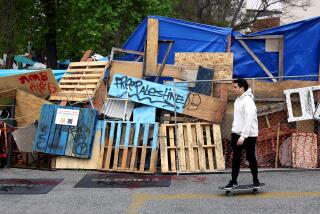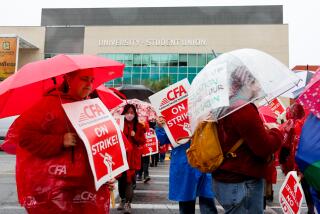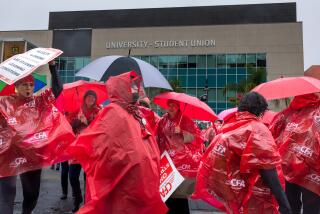FULLERTON : Soviet Prof Tests U.S. Campus Life
During his first three weeks as a visiting professor at Cal State Fullerton, Soviet professor Nikolai Slepov was struck by all the sights and sounds of the American university. But what surprised him most was the sight of crowded classrooms.
“On the first day of class, students were sitting on the floor,” he said. In the Soviet Union “it is not so crowded.” The reason, he said, is that the Soviet educational system weeds out students through difficult testing.
Slepov is teaching at Cal State Fullerton as part of an exchange program between the university and the Moscow Institute for Steel and Alloys, made possible by opened communications between the two countries, Slepov said.
Four Soviet students are also participating in the exchange, including basketball player Anna Abramova, the first Soviet athlete to play for an American school, according to Cal State Fullerton officials.
Slepov is here to learn computer skills that can aid his country as it enters into the Western markets. The professor said he also is seeing the differences between the U.S. educational system and the Soviet one.
For instance, although teaching in the Soviet Union is made easier by the smaller class size, the system also determines who may remain in school.
At home, Slepov said, at the beginning of each term, he gives students a “ticket” with three problems to solve. The problems may deal with material that hasn’t been discussed in class yet, but students who do not answer all three questions correctly are dropped from class.
But Slepov said the Soviet system is not necessarily too severe.
“If a student has the will to learn something, he can. If not, no system can press him.”
Slepov said he thinks that his Cal State Fullerton computer students are more devoted to their education than Russian students.
“They’re paying for it themselves. They must learn hard to be employed in the future.”
In the Soviet Union, he said, “most Russian students don’t want to work with steel and alloy, they just want to get their certificate.”
More to Read
Sign up for Essential California
The most important California stories and recommendations in your inbox every morning.
You may occasionally receive promotional content from the Los Angeles Times.









